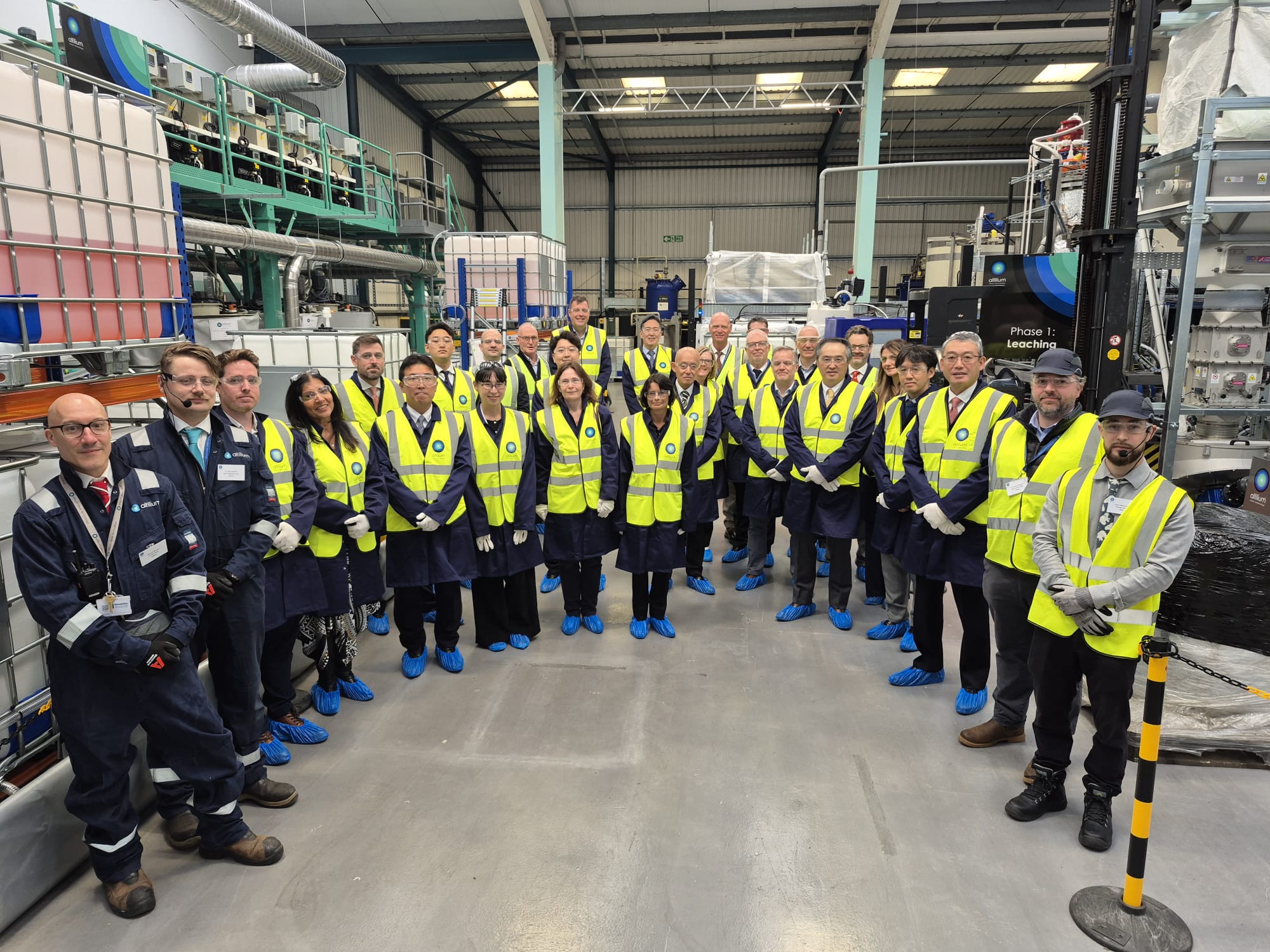Altilium, a UK-based clean technology group focused on supporting the transition to net zero, today welcomed a delegation of over 20 key investors and stakeholders to the VIP Opening Ceremony of its ACT 2 EV battery recycling facility in Plymouth – the UK’s first-of-a-kind pilot plant dedicated to the sustainable recovery of critical battery materials from end-of-life EV batteries.
High profile international attendees included senior executives from Altilium’s foundation investors Marubeni Corporation and Mizuho Bank, as well as the Japan Organisation for Metals & Energy Security (JOGMEC), the Embassy of Japan and Export Development Canada, underscoring the importance of international collaboration in advancing the clean energy transition.
Key UK government and public sector funding bodies were also present, including senior representatives from the Advanced Propulsion Centre (APC), Innovate UK, The Department of Business & Trade (DBT), the National Wealth Fund (NWF), UK Export Finance and Plymouth City Council.
Public funding from the APC and Innovate UK has played a critical role in accelerating Altilium’s R&D and scale-up journey – helping to bridge the gap between early-stage innovation and commercialisation and supporting the construction of ACT 2.
During a tour of the state-of-the-art facility, the delegation met with Altilium’s leadership team to see first-hand how the company is pioneering clean tech innovation and creating new green jobs for the region. Altilium also shared details of its expansion plans, including construction of its ACT 3 commercial-scale facility, as well as ongoing validation of its low-carbon battery materials with automotive OEMs.
Dr Christian Marston, Altilium COO, commented: “We’re honoured to welcome so many distinguished guests here today to witness pilot-scale battery materials recycling in the UK. ACT 2 is a testament to the hard work and dedication of our incredible team and the unwavering support of our partners, who share our vision for a more sustainable future. Together, we’re showcasing how UK industrial policy, combined with public and private finance, can deliver the clean industries of the future.”
The commissioning of ACT 2 marks an important milestone in Altilium’s mission to create a closed-loop, low-carbon battery materials supply chain for the UK. Building on the company’s R&D success at its ACT 1 Technology Centre, the 18,000 square foot facility will validate Altilium’s proprietary recycling processes at pilot scale, enabling production and delivery of large volumes of battery grade samples for automotive customers.
Altilium’s advanced EcoCathode™ process is capable of recovering over 95% of cathode metals – including lithium, nickel and cobalt – with up to 74% lower emissions than conventional mining. Cathode and anode materials recovered at the company’s ACT 1 facility have already been successfully integrated into the production of prototype EV battery cells, for validation with a leading OEM.
The ACT 2 pilot is a key step in Altilium’s scale-up roadmap toward commercial deployment. It lays the foundation for the company’s new ACT 3 facility, currently under construction in Plymouth, and its planned ACT 4 mega-scale recycling and cathode active materials (CAM) production plant, which will lead to the creation of more than 250 highly skilled jobs.
By producing domestic supplies of lithium, nickel and cobalt from recycling, Altilium is reducing the UK’s dependence on imported raw materials and improving resource efficiency in the automotive sector. This circular economy approach strengthens supply chain resilience and aligns with the UK Government’s new Modern Industrial Strategy, as well as supporting the transition to net zero.
Today’s event also celebrates the deepening partnership between the UK and Japan in clean energy innovation. As part of Altilium’s Series B funding round in January 2025, Marubeni Corporation and Mizuho Bank jointly invested in the company – reinforcing shared ambitions to build a sustainable global battery ecosystem and accelerate the transition to net zero mobility.

Get in touch
Building the recycling infrastructure needed for net-zero requires a collaborative approach.




